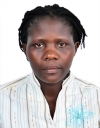Nathan Kenya-Mugisha
ID: UNCST-2021-R013752
|
Theoretical analysis of the pediatric discharge process in Uganda: A process evaluation
REFNo: HS929ES
The primary objective of this study is to build a theoretical model of the current pediatric discharge pathway from the time of admission until post-discharge follow-up.
|
Uganda |
2020-11-17 |
2023-11-17 |
Medical and Health Sciences |
|
Non-degree Award |

|
DAVID KATEETE PATRICK
ID: UNCST-2020-R004018
|
Co-infection of SARS-CoV-2 with M. tuberculosis & other respiratory pathogens (SARS-CoV-2-
REFNo: HS940ES
(1) Estimate the prevalence of coinfection of SARS-CoV-2 with other respiratory pathogens, (2) Investigate the impact of coinfections on molecular testing for COVID-19 infection and, (3) Apply metagenomics whole genome sequencing for unbiased detection of respiratory pathogens directly in respiratory samples
|
Uganda |
2020-11-17 |
2023-11-17 |
Medical and Health Sciences |
|
Non-degree Award |

|
Dinah Amongin
ID: UNCST-2020-R014663
|
Rapid Assessment of COVID-19 Impact on Family Planning Access and Use
REFNo: HS952ES
1. Document the proportion of Viamo 3-2-1 users who have their demand for family planning satisfied by modern methods during the pandemic and the recovery process;
2. Measure the proportion of current modern contraceptive users who have obtained their preferred contraceptive method among women who initiated or resupplied their method during the pandemic and the recovery process;
3. Describe barriers in accessing family planning services to ensure voluntary method use and choice during the pandemic and the recovery process.
|
Uganda |
2020-11-17 |
2023-11-17 |
Medical and Health Sciences |
|
Non-degree Award |

|
Patrick Kagurusi Tumusiime
ID: UNCST-2021-R012687
|
International Registry of Healthcare Workers Exposed to COVID-19 Patients (UNITY Global) at Selected Health facilities in Uganda
REFNo: HS964ES
Primary Objective
To assess the association of potential prophylactic treatments with reduced risk of COVID-19 (or SARS-CoV-2 infection) in HCWs caring for COVID-19 patients at selected health facilities in Uganda.
Secondary objectives
i) To characterize the type of potential prophylactic treatments, by dose and duration, overall, and by region and or selected health facilities (sites) in Uganda.
ii) To explore the key factors (for example, use of PPE, HCW and healthcare facility characteristics, underlying co-morbidities, household history and COVID-19 exposure) modifying the risk of COVID-19 among HCWs at selected health facilities (sites) in Uganda.
|
Uganda |
2020-11-17 |
2023-11-17 |
Medical and Health Sciences |
|
Non-degree Award |

|
Margaret Lubwama
ID: UNCST-2019-R000636
|
Antibacterial activity of Rosmarinus officinalis L. and Curcuma longa against bacteria from clinical specimens in Uganda- A therapeutic option for multidrug resistant bacteria (ARC study)
REFNo: NS141ES
Main objective
To determine the activities of Rosmarinus officinalis L. (rosemary) and Curcuma longa (turmeric) extracts against bacteria isolated from clinical specimens at the Makerere University Microbiology Clinical Laboratory (MUCML) from January 2018 to December 2019
Specific objectives
1. To develop the chemical composition of Rosmarinus officinalis L. (rosemary) and Curcuma longa (turmeric) extracts
2. To determine the Minimum Inhibitory Concentration of plant extracts from Rosmarinus officinalis L. (rosemary) and Curcuma longa (turmeric) against bacteria isolated from clinical specimens
3. To determine the synergistic effects of combination of Rosmarinus officinalis L. (rosemary) and Curcuma longa (turmeric) and antibiotics against bacteria isolated from clinical specimens in the MUCML
|
Uganda |
2020-11-17 |
2023-11-17 |
Natural Sciences |
|
Non-degree Award |

|
Wenceslaus Sseguya
ID: UNCST-2019-R000877
|
The Effect COVID-19 Pandemic on the Management and Control of Diabetes in Patients Receiving Support from a Life for a Child-Supported Diabetes Program in Kasese District, Western Uganda
REFNo: HS987ES
• To describe problems and challenges experienced by patients with insulin-requiring diabetes during the COVID-19 pandemic.
• To explore personal experiences of health workers and primary caregivers regarding diabetes management and control of patients with insulin-requiring diabetes during the COVID-19 pandemic.
• To document mechanisms used to solve problems and overcome challenges encountered by patients with insulin-requiring diabetes, caregivers and health workers during the COVID-19 pandemic.
• To describe the perceived support needs for patients with insulin-requiring diabetes during the COVID-19 pandemic period and post the COVID-19 period.
|
Uganda |
2020-11-17 |
2023-11-17 |
Medical and Health Sciences |
|
Non-degree Award |

|
Andrew Mujugira
ID: UNCST-2019-R000871
|
Interventions for Improved Post-partum ART Continuation and HIV Testing of Male Partners of Women in PMTCT B+ in Uganda
REFNo: HS991ES
Aim 1: To evaluate whether the proportion of male partners of pregnant HIV-positive women who test for HIV, is improved after distribution of a letter of invitation to a wellness visit (dual syphilis and HIV rapid test, blood pressure, visual acuity screening and COVID-19 screening) to their female partners compared to the standard of care (standard of care invitation letter from the clinic).
Aim 2: To evaluate whether POC viral load testing with same day ART adherence support improves viral suppression among pregnant and post-partum women living with HIV compared to standard of care lab-based HIV VL testing.
Aim 3: To assess the proportion of HIV-negative male partners who initiate PrEP and HIV positive men who initiate ART among male partners who test for HIV through a wellness visit or standard of care letter from the clinic.
Aim 4: To evaluate acceptability and preferences for HIV testing and other health services among pregnant women and male partners using mixed methods.
|
Uganda |
2020-11-17 |
2023-11-17 |
Medical and Health Sciences |
|
Non-degree Award |

|
Namulema Edith
ID:
|
EARLY RESUMPTION OF SEXUAL INTERCOURSE IN THE PUERPERIUM AMONG MOTHERS IN UGANDA: BURDEN AND THE EFFECT OF HEALTH EDUCATION ON PUERPERAL ABSTINENCE
REFNo: HS1050ES
1)To establish the burden and factors associated with of early resumption of sexual intercourse within the puerperium (ERSP) among new mothers in Kawempe National Referral Hospital (Kawempe NRH) and Mengo Hospital.
2)To explore the perceptions, attitudes, experiences and actions towards the ERSP among new mothers and their partners in Kawempe NRH and Mengo Hospital.
3)To explore how health care workers in Kawempe NRH and Mengo Hospital perceive the level of puerperal sexual health care services provided to couples with new babies.
4)To identify strategies that may delay the early resumption of sexual intercourse among new mothers at Kawempe NRH and Mengo Hospital and design an appropriate psycho-sexual educational intervention to reduce ERSP.
5)To evaluate the effect of psycho-sexual health educational intervention on reducing ERSP among couples with new babies at Kawempe NRH and Mengo Hospital.
|
Uganda |
2020-11-17 |
2023-11-17 |
Medical and Health Sciences |
|
Degree Award |

|
Joseph Musaazi
ID:
|
USING ROUTINELY COLLECTED SECONDARY DATA TO ESTIMATE UPTAKE AND EFFECT OF ISONIAZID PREVENTIVE THERAPY ON TUBERCULOSIS INCIDENCE AND PREGNANCY OUTCOMES AMONG PEOPLE LIVING WITH HIV RECEIVING CARE IN PUBLIC HEALTH FACILITIES IN UGANDA.
REFNo: HS729ES
1) To determine trends of IPT uptake and completion rates among PLHIV receiving HIV care at public health facilities in Uganda.
2) To determine the effect of IPT on TB incidence among PLHIV receiving care at public health facilities in Uganda.
3) To estimate the effect of IPT on pregnancy outcomes among women living with HIV (WLHIV) receiving care at public health facilities in Uganda.
|
Uganda |
2020-11-16 |
2023-11-16 |
Medical and Health Sciences |
|
Non-degree Award |

|
Jamila Nansimbe
ID:
|
UNDERSTANDING THE MEDICAL SUPPLY CHAIN BOTTLENECKS IN THE PUBLIC HEALTH SECTOR IN UGANDA (CASE OF KAMPALA CAPITAL CITY AUTHORITY HEALTH CENTERS)
REFNo: HS939ES
1. To examine the main causes of stock-outs of medicine and health supplies.
2. To examine the main causes of expiry of medicines and health supplies.
3. To recommend supply chain interventions to improve availability of medicines and health supplies.
|
Uganda |
2020-11-13 |
2023-11-13 |
Medical and Health Sciences |
|
Non-degree Award |

|
Cissy Kityo
ID: UNCST-2021-R013663
|
A5372: Drug-Drug Interactions Between Rifapentine and Dolutegravir
in HIV/LTBI Co-Infected Individuals
REFNo: HS624ES
Primary Objectives;
-To determine the dosing for DTG that, when given together with 1HP, achieves target exposures (Ctrough) of standard-dose DTG when it is given without RPT.
-To estimate the steady state plasma pharmacokinetics (PK) of DTG when DTG 50 mg is dosed twice daily (BID) with 1HP.
-If Arm 2 opens, to estimate the steady state plasma PK of DTG when DTG 50 mg is dosed once daily (QD) with 1HP.
Secondary Objectives;
-To evaluate the safety of coadministration of DTG based ART with 1HP.
-To evaluate the tolerability of coadministaration of DTG based ART with 1HP
-To estimate the proportion of participants who maintain virologic suppression when DTG based ART is coadministered with 1HP
|
Uganda |
2020-11-12 |
2023-11-12 |
Medical and Health Sciences |
|
Non-degree Award |

|
Pauline Amuge Mary
ID:
|
Community-based initiation and delivery of isoniazid preventive therapy (IPT) among household TB contacts in Uganda: A pilot project in Southwestern Uganda.
Short Title: Community-Based TB prevention (Acronym: COMBAT TB).
REFNo: HS768ES
Primary Objective:
To assess the uptake of IPT among household TB contacts <5 years of age receiving IPT in the community delivery approach.
Specific Objectives:
1. To determine IPT completion rates among household TB contacts <5years of age enrolled in community-based delivery approach compared to those in the health facility-based IPT delivery approach.
2. To identify the factors that facilitate or hinder IPT uptake in the community-based delivery for household TB contacts <5years of age.
3. To determine the feasibility of community-based IPT delivery for household TB contacts <5years of age.
4. To determine the factors that facilitate or hinder IPT completion among household TB contacts <5years of age who initiate IPT.
|
Uganda |
2020-11-12 |
2023-11-12 |
Medical and Health Sciences |
|
Non-degree Award |

|
Denis Kyabaggu Senkandwa
ID: UNCST-2023-R005881
|
INFLUENCE OF SP110 POLYMORPHISMS IN HUMAN MACROPHAGES ON PULMONARY TUBERCULOSIS DISEASE AMONG UGANDANS
REFNo: HS870ES
-To identify, using Next Generation DNA Sequencing (NGS) technology, the SP110 gene polymorphisms among adult Ugandan pulmonary tuberculosis (PTB) disease patients reporting to Mulago National Referral hospital TB clinic.
-To determine the effect of the commonest SP110 SNPs identified in Ugandans on in vitro infection kinetics of MTB as measured by confocal microscopy techniques, in human monocytic leukemia THP-1 macrophage tissue cultures.
-To determine the in vitro effect of the top 3 SP110 SNPs among Ugandans on infection kinetics of MTB lineages 2, 3, 4 and H37Rv isolates in human monocytic leukemia THP-1 macrophage tissue cultures using confocal microscopy.
-To determine the SP110 SNPs present among TB patients co-infected with HIV at Mulago National Referral Hospital TB clinic.
|
Uganda |
2020-11-12 |
2023-11-12 |
Medical and Health Sciences |
|
Degree Award |

|
Rhoda Wanyenze
ID: UNCST-2021-R013352
|
PILOT OF A NETWORK-DRIVEN, ADVOCACY INTERVENTION TO PROMOTE CERVICAL CANCER SCREENING IN UGANDA
REFNo: HS943ES
The proposed intervention development study seeks to improve cervical cancer screening in Uganda by engaging and training local public health researchers and program implementers, and empowering women living with cervical cancer risk (WLCCR), defined as women who have ever received treatment for pre-cancerous or cancerous lesions, to advocate for CC screening and early treatment among women in their social networks. Specifically, the study will aim to:
1. Assess the feasibility and acceptability of implementing a cervical cancer screening advocacy intervention with WLCCR, who will be trained to be advocates for CC screening and treatment behaviors in their social networks.
2. Assess preliminary intervention effects on the CC screening (primary outcome) and treatment behaviors of women in contact with the WLCCR advocates and diffusion of anti-stigma messages across social networks.
3. Explore characteristics of women who more effectively engage in screening advocacy (in terms of socio-demographics, network characteristics, and type of social network members receiving advocacy).
4. Increase capacity among local researchers and program implementers to conduct public health research on cervical cancer control and use social network-based intervention and measurement methods.
The intervention will be implemented in three phases, and for each phase, we will seek ethical clearance and approval prior to data collection. At the moment, we are seeking ethical clearance for the first phase where we intend to conduct focus group discussions to obtain women's perceptions and suggestions about the intervention to inform the development of the intervention.
|
Uganda |
2020-11-12 |
2023-11-12 |
Medical and Health Sciences |
|
Non-degree Award |

|
Amon Agaba
ID:
|
The quality and safety standards of herbal medicine production and vending in greater Mbarara District
REFNo: HS720ES
General Objective:
To document the adherence and practice required to maintain the quality and safety of herbal medicine production and vending in Mbarara District.
Specific Objectives:
I.To document the adherence to standard herbal medicine production guidelines by herbal medicine producers and vendors in Mbarara District
II.To explore the enablers and barriers to adherence to the recommended guidelines that govern the production and vending of herbal medicine in Mbarara District.
|
Uganda |
2020-11-11 |
2023-11-11 |
Medical and Health Sciences |
|
Non-degree Award |

|
Josephine Nabukenya Kwagala
ID:
|
ASSESSING THE POTENTIAL FOR TRANSFORMING HEALTH IN UGANDA THROUGH AN ELECTRONIC HEALTH DATA SHARING PLATFORM AND DATA SCIENCE
REFNo: HS1005ES
General Objective:
To explore the readiness malaria and HIV as potential demonstrator conditions for an EHR data capturing and processing system infrastructure and analytical methods that could support Uganda’s Ministry of Health and related health institutions to provide responsive care and interventions based on real-time surveillance.
Specific Objectives:
Objective 1: To (a) develop a complete understanding of the routine care data currently captured and all surrounding dynamics including timing of capture by whom and how and what the current state of onward use is and (b) determine how these will influence data capture with electronic point of care capture systems.
Objective 2: To determine what technical, ethical/governance and workforce infrastructure are required for a timely model data capture system that addresses medical, public health and research needs of stakeholders.
Objective 3: In order to determine readiness, we will (a) model the cost of each proposal/ model system and determine on-going cost and potential cost recovery, including the cost of all other components (i.e., Buy-in, Timeliness, Capability) and determine what would be required to eliminate key barriers; and (b) map our data to EHR data capture and processing readiness frameworks.
Objective 4: To provide examples of cost effectiveness by determining how much additional malaria and/or HIV control would be required to offset the cost of the system over various time periods.
|
Uganda |
2020-11-11 |
2023-11-11 |
Medical and Health Sciences |
|
Non-degree Award |

|
Moses Mulumba
ID: UNCST-2021-R013832
|
National Study on the impact of contentious issues and masculinities on the realization of Sexual and Reproductive Health and Rights in Uganda
REFNo: SS537ES
General Objective: To generate evidence for SRHR advocacy and programming in Uganda
Specific objectives are;
1. To document the journey of the Sexual and Reproductive Health and Rights movements in Uganda
2. To explore the relationship between masculinities and sexual reproductive health and rights
3. To examine the influence of contentious issues like abortion, and LGBTQI on the realization of SRHR
|
Uganda |
2020-11-10 |
2023-11-10 |
Social Science and Humanities |
|
Non-degree Award |

|
Robert Downing George
ID: UNCST-2020-R014615
|
Evaluation of the Clinical Performance of a Plastic Capillary Tube with the Determine HIV-1/2, Determine HIV Early Detect and Determine HBsAg 2 Rapid Tests
REFNo: HS895ES
The primary objective of this study is to evaluate the performance of a new plastic capillary tube for the transfer of a capillary finger-stick blood sample to 3 rapid test platforms; the Determine HIV-1/2 test platform, the Determine HIV Early Detect test platform and the Determine HBsAg 2 platform. The HIV and HBsAg results obtained using the new plastic capillary tubes to transfer capillary whole blood to the test devices will be evaluated against the HIV and HBsAg results obtained using a micropipette to transfer a whole blood venous sample from the EDTA Vacutainer tube to the same testing platforms, with discrepant result resolution where required. The new plastic capillary tubes have been verified in an internal performance study at the Abbott laboratories.
|
UK |
2020-11-10 |
2023-11-10 |
Medical and Health Sciences |
|
Non-degree Award |

|
Edward Bitarakwate
ID:
|
Evaluation of Patient and Program Outcomes Achieved through EGPAF-supported Integrated HIV and TB Prevention, Care, and Treatment Programs in Uganda
REFNo: HS930ES
Primary Objectives:
1.To determine patient and program outcomes for children, adolescents and adults receiving HIV and TB services in EGPAF supported facilities and through EGPAF supported programs.
Secondary Objectives:
1. To determine outcomes of HIV testing strategies targeted at identifying HIV positive children, adolescents, and adults in facilities and the community including the number and proportion identified as HIV-positive, linked to HIV services, and initiated on ART in EGPAF supported facilities and through EGPAF supported programs.
a. To determine individual, population, and program characteristics/factors associated with each outcome along the testing to treatment cascade.
2. To determine clinical and laboratory outcomes among HIV-positive children, adolescents and adults enrolled in HIV services such as morbidity (including coinfections), mortality, ART regimen, ART adherence, retention in care, viral suppression, and disease progression in EGPAF supported facilities and through EGPAF supported programs.
a. To determine individual, population, and program characteristics/factors associated with each outcome, including baseline clinical characteristics before initiating ART.
3. To determine the outcomes of HIV prevention activities (including PMTCT) among pregnant women, discordant couples, adolescents and other key and priority populations in facilities and the community including the number accessing prevention services by risk category, retention in services, and seroconversion rates.
a. To determine individual, population, and program characteristics/factors associated with the HIV prevention outcomes.
4. To determine clinical and laboratory outcomes among children, adolescents and adults accessing TB screening/diagnosis, prevention, and treatment services such as HIV/TB coinfection rates, initiation and adherence to IPT, initiation and adherence to TB treatment, retention in care, treatment outcomes for drug resistant TB, mortality.
a. To determine individual, population, and program characteristics/factors associated with each outcome.
|
Uganda |
2020-11-10 |
2023-11-10 |
Medical and Health Sciences |
|
Non-degree Award |

|
Harriet Mayanja-Kizza
ID: UNCST-2021-R013074
|
“Assessment of circulating proteins in Ugandan tuberculosis household contacts for latent TB infection biomarker development: Version 1.0 dated 14 Sept 2020â€
REFNo: HS958ES
Refine our protein signature to function in HIV-positive persons, incorporating cytokine and chemokine markers as needed.
2. Refine our protein signature to identify Mtb infection that has developed within a 6-month timeframe.
|
Uganda |
2020-11-10 |
2023-11-10 |
Medical and Health Sciences |
|
Non-degree Award |

|
| View |
|
Sort By: |
|
|
|
| |
|